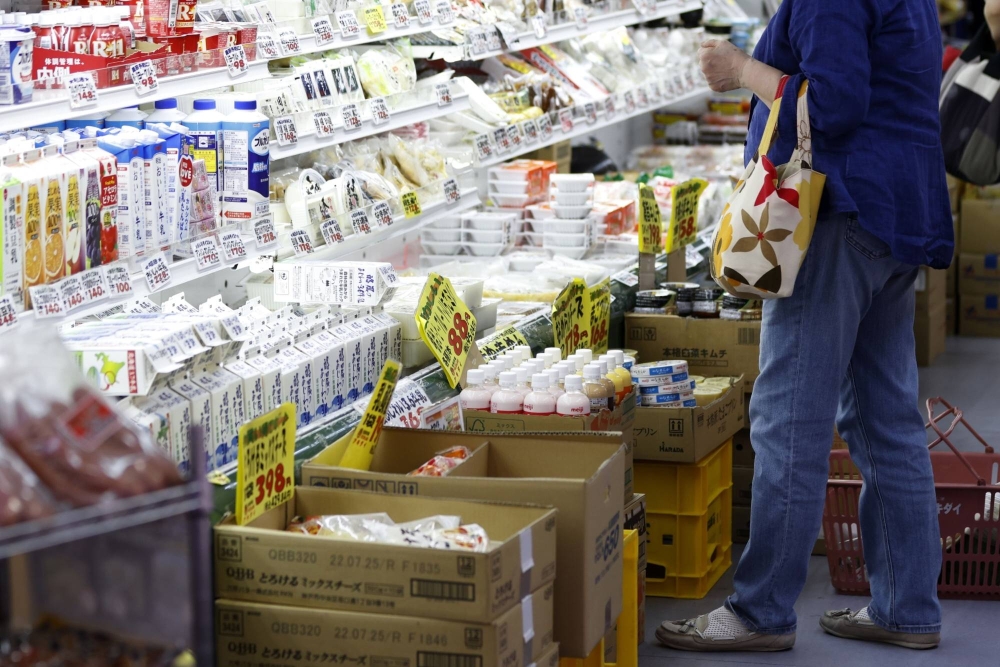Core consumer prices in Japan increased 3.1% in August from a year earlier, remaining above the Bank of Japan’s 2% inflation target, as surging food prices continued to add to overall inflationary pressures, government data showed Friday.
The core consumer price index (CPI), excluding volatile fresh food items, rose for the 24th straight month, as companies continued to pass higher production costs on to consumers. The gauge remained above the BOJ’s 2% target for the 17th consecutive month.
The rate of increase in the key gauge of inflation was unchanged from July after energy prices dropped 9.8% from a year earlier, according to the internal affairs ministry.
The core-core CPI, which reflects the underlying inflationary trend by stripping away volatile energy and fresh food prices, rose to 4.3%, with the rate of growth also unchanged from the previous month.
“The inflationary pressure has not weakened at all as food prices keep rising,” said Shingo Ide, chief equity strategist at the NLI Research Institute.
“Companies have not fully passed an increase in costs on to consumers yet, so we should expect this trend to continue for the time being,” he said.
Food prices soared 9.2% as rising material and transportation costs pushed up prices of a wide range of items such as fried chicken and ice cream. Durable goods saw a 3.0% increase.
Accommodation fees jumped 18.1% as more people traveled during the summer holiday season after COVID-19-related restrictions were fully removed.
Mobile communication fees rose 10.2% due to a change in fee plans at some carriers.
The inflationary pressure was somewhat moderated by the fall in energy prices stemming from government subsidies to reduce household utility bills.
The costs of electricity and city gas dropped 20.9% and 13.9%, respectively, thanks to government measures, while that of gasoline climbed 7.5%.
A ministry official said the government will continue to monitor energy costs closely as the price of resources such as crude oil is trending upward.
Rising prices continue to deal a blow to consumers in Japan where an increase in wages has not kept up with the soaring costs of goods and services.
The country’s real wages fell for the 16th straight month in July, according to government data.

